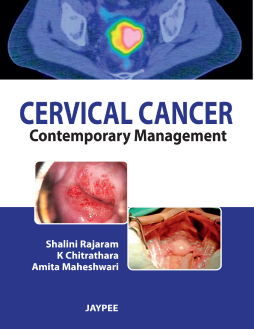
BOOK
Cervical Cancer: Contemporary Management
Shalini Rajaram | K Chitrathara | Amita Maheshwari
(2012)
Additional Information
Book Details
Abstract
Cervical Cancer: Contemporary Management is indeed a state-of-the-art textbook on cervix cancer. The contents are organized into 8 sections and 33 chapters with the latter consistently and sequentially structured with an initial outline, introduction, descriptive but focused narrative complemented by quality figures, diagrams, tables and photographs and supported by contemporary references affording ease of access to appropriate resource information. This may be the only book of its kind comprehensively addressing all aspects of cervical cancer beginning with screening, diagnosis and management of pre-invasive disease which includes screening in low resource countries, recent advances in screening technology, HPV carcinogenesis, molecular markers and of course primary prevention with HPV vaccination. Staging protocols, imaging techniques and sentinel node evaluation have been discussed in detail. Surgical management of cervical cancer is complete in all respects. All surgical techniques ranging from radical trachelectomy, radical abdominal hysterectomy, laparoscopic nerve-sparing radical hysterectomy, radical vaginal hysterectomy and the complications of surgery are described in detail. Emphasis in many chapters is on nerve-sparing radical hysterectomy which is known to reduce bladder, rectal and sexual dysfunction postoperatively. Postradiation hysterectomy and pelvic exenterations have been extensively covered. Renowned national and international surgeons have contributed well-written chapters which speak for their experience and expertise. Likewise, the radiation arm of cancer cervix therapy is extensive and ranges from radiation therapy: principles and techniques, chemoradiation, neoadjuvant chemotherapy, management of recurrent disease by both chemotherapy and radiation and interstitial brachytherapy. Image-guided techniques and treatment planning have been described wherever appropriate. This book is valuable and finds itself on the bookshelves of all those who practice gynecologic oncology, postgraduate students and fellows specializing in this field.
